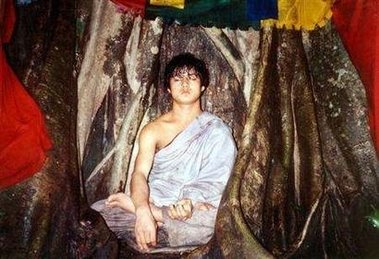The rebels, who have been fighting since 1996 to replace the monarchy with a communist republic, called the blockade of Kathmandu, district capitals and other cities in a bid to end the absolute rule of King Gyanendra, who seized power last year.
Authorities have urged drivers to defy the rebels, offering armed escorts to vehicles willing to risk it, but most roads across the mountainous nation were all but deserted.
"Industries are on the verge of being closed due to the blockade," said Bijay Sarawagi, chief of the Birgunj unit of the Federation of the Nepalese Chambers of Commerce and Industry. Birgunj is a major business centre in the southern plains.
"We can't send our products to the market and bring raw material from outside because transport vehicles are not running," Sarawagi said. "If this situation continues we'll have no alternative but to close down factories."
Trucks carrying goods from India, which supplies the bulk of essential supplies to the landlocked nation, were backed up at border crossings because drivers were scared to defy the Maoists.
"I saw nearly 50 Nepal-bound trucks loaded with goods waiting on the Indian side of the border," journalist Kulmani Gwyanli said from the western town of Bhairahawa, a major trading point along the border with India.
Ordinary Nepalis were also feeling the impact of the blockade.
Kathmandu housewife Lila Poudel said she had stocked 200 kg (440 lbs) of rice for a family of four but was worried that fresh vegetables would soon disappear from the markets.
"The price of tomatoes has more than doubled to 40 rupees (55 US cents) a kilo and prices of other vegetables have also increased by more than 50 percent in just two days," Poudel said outside a vegetable shop in the capital.
"But I don't care about the price as long as I get what I want," she said. "Soon things may not be available."
Officials said the capital, home to more than 1.5 million people, had enough food grains for two months and supplies of petrol, kerosene and diesel for two weeks.
Nepal is among the 10 poorest countries in the world, and its tourism- and aid-dependent economy has been shattered by the 10-year Maoist rebellion.
The Asian Development Bank, a key donor, said in a recent report that economic growth slowed to 2 percent in the financial year ending July 2005 from 3.2 the previous year.
Sarawagi said the industries hardest hit were those exporting vegetable oil, plastic bags and iron goods to India. In Birjung alone about 500 companies, employing 30,000 workers, have been hit by the rebel action.
Nepal has been in turmoil since King Gyanendra seized full power in February last year, sacking the government and suspending some civil liberties.
He justified his move as necessary to quell the Maoist conflict, that has killed more than 13,000 people, but the fighting rages on leaving the king more isolated than ever.
Nepal seven main political parties, which reached a loose accord with the Maoists in November to restore democracy, have opposed the blockade, saying it can only hurt ordinary Nepalis.



